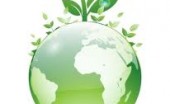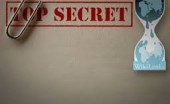Johannah Bernstein post: "eternally proud of my father’s extraordinary aeronautical engineering. legacy. here is a photo of the Canadair Water…
Iran: analysis and commentary
Written by Diana Thebaud Nicholson // August 6, 2009 // Iran // Comments Off on Iran: analysis and commentary
Iran’s enduring turmoil
President Mahmoud Ahmadinejad, reconfirmed in office, still faces a groundswell of bitter and spreading opposition
(The Economist) Many conservatives are, in fact, far from enthusiastic about their president. Even if he can withstand the opposition’s scorn, dismay and anger, he faces trenchant distrust within his own camp. A tussle with the supreme leader last month forced him to scrap the appointment of an in-law as vice-president. Personal clashes have led him to sack several top officials in the intelligence service, including its minister. These may be just the opening shots in what may be a sticky process to win parliament’s approval of a new cabinet.
Such struggles will also handicap Mr Ahmadinejad in economic and foreign policy. The Iranian economy was buffeted by international sanctions and lower energy prices even before political unrest shrivelled investment nearly to zero. It is in poor shape to endure still more of its president’s erratic populism. And Mr Ahmadinejad’s regime, now fully exposed in its ugliness, can expect little mercy from the world at large.
Weakened as they are, Iran’s leaders may find it expedient to curb some of their enthusiasm for foreign adventures and perhaps even their controversial nuclear programme. But their heightened xenophobia and demonisation of contact with the West augur badly for Barack Obama’s effort to engage with Iran’s rulers. Indeed, he is already tempering his early call for dialogue. Instead, there is more talk of tightening sanctions and developing even bigger bunker-busting bombs.
2 August
Roger Cohen: The Making of an Iran Policy
(NYT Magazine) A sobered America is back in the realpolitik game. … To the nuclear clock has been added a democracy clock, complicating every diplomatic equation. An Iran of mullahs and nukes has morphed, for many Americans, into the Iran of beautiful, young Neda Agha-Soltan, cut down with a single shot while leaving a June 20 demonstration, a murder caught on video that went viral. Whatever Obama’s realism — and it’s as potent as his instinct for the middle ground — a president on whom so much youthful idealism has been projected can scarcely ignore the Neda effect.
1 August
Iran: The end of the Republic?
By Bernd Kaussler
(Al Jazeera) Thirty years after the Islamic Revolution, the Islamic Republic of Iran – if one can still call it a republic – is at a crossroads.
What has been manifesting itself on Iran’s streets since the disputed presidential elections is not only the electorate’s collective feeling of injustice and rage, but also the religious-political elite’s underlying divide over the future of the velayat-e faqih and its entire political system.
When Mohammad Khatami was president of Iran from 1997 to 2005, reformist hermeneutics largely centered on the notion of justice – a fundamental tenet of Shia jurisprudence – civil society and human rights.
31 July
Iran at the Crossroads
By ABOLHASSAN BANI-SADR
(IHT) PARIS — In the weeks since the Iranian election, the government of the Islamic Republic has been publicly divided, delegitimatized and grown increasingly more weak. The current situation offers parallels with the political unrest leading up to the 1979 Islamic Revolution that ended the rule of the shah. Historically, the Iranian government has enjoyed four sources of legitimacy: its competence in managing state affairs, its official religious authority, its commitment to Iran’s independence, and its ability to provide a stable base of social support. All of these have now been irretrievably undone.
30 July
Mahmoud Ahmadinejad is being buffeted on all sides
IT HAS been a rough fortnight for Mahmoud Ahmadinejad, Iran’s beleaguered president. Mir Hosein Mousavi is proving an unexpectedly tenacious opponent, accusing Mr Ahmadinejad’s government of a catalogue of crimes against the Iranian people. In a Friday sermon at Tehran University, Akbar Hashemi Rafsanjani, a former president and one of Mr Ahmadinejad’s leading foes, ominously called the turmoil “a crisis”. Muhammad Khatami, another former president, has called for a referendum on the disputed presidential election results. Now, only days before his inauguration for a second term, Mr Ahmadinejad has fallen out with a clutch of powerful conservatives whom he had formerly counted as allies.
29 July
Demystifying Iran
(Foreign Policy in focus) Post-election turmoil in Iran has brought the country closer to the top of America’s foreign policy concerns. More importantly, though, it has piqued the interests of the American public. Green is the new black, Moussavi and Khamenei have become household names, and tweeting about Iranian politics has never been more popular.
But what is Iran like beyond its politics and the Western media hype? Iranian-born filmmaker Maryam Habibian tackles this question in her most recent documentary, The Mist. The film delves into the lives of young artists, poets, playwrights, and intellectuals in Iran whose creative energy flourishes alongside fundamentalist traditions. It explores the balance they reach between artistic expression and the limitations of a conservative political regime. Habibian shows her viewers another side to Iran, one that has been largely overlooked by conventional media. She is committed to showing her audience that a society cannot be defined solely by its political system and that when it comes to Iran, we are not facing a clash of civilizations.
30 June
Payam Akhavan: The West must stand by Iranian protesters
(Ottawa Citizen) June 15, 2009, will be remembered as a turning point in the struggle for democracy in Iran, when millions of outraged citizens poured onto the streets of Tehran and other cities to protest fraudulent elections and express frustration at years of repression and national decline.
The ferocity with which the hardliners have crushed this movement shows the struggle for freedom will be long and hard. The prospect of mass executions now looms over these heroic protesters and the world must stand with them to prevent further atrocities.
The unprecedented display of people power has inspired the world and irreparably shattered the myth that Iran’s political leadership is somehow divinely ordained and invincible. In the aftermath of this political earthquake, the authoritarian ways of the past cannot continue indefinitely. At the very least, the immediate future will bring factional struggles within what was once the unified inner circle of the Islamic Republic. Ultimately, the prevalence of a democratic culture among the masses will erode the power base that sustained the leadership.
22 June
Was Iran’s election stolen? New study makes a forceful case
(CSM) A report by the Chatham House in London and the Institute of Iranian Studies at St. Andrew’s University in Scotland shows that official Iranian election data raises many key questions about the June 12 vote. The report, “Preliminary Analysis of the Voting Figures in Iran’s 2009 Presidential Election” published by the Chatham House think tank in London and the Institute of Iranian Studies at St. Andrew’s University in Scotland, found instances of greater than 100 percent turnout in two provinces. It also found an improbable 90 percent turnout in four other provinces. The research was based official Iranian data.
13 June
Juan Cole: Stealing the Iranian Election
(Informed Comment) Top Pieces of Evidence that the Iranian Presidential Election Was Stolen
19 April 2008
Payam Akhavan on the greatest threat to Iran’s Islamic hardliners: The democratic aspirations of the Iranian people
(National Post) … My solace is that the recent intensification of attacks against the exponents of a burgeoning Iranian civil society — human rights activists, labour union leaders, student movements, intellectuals, journalists, religious minorities, even dissident Islamic clerics — is a sign of the Islamic hardliners’ desperation to cling to power amidst the disillusionment of the vast majority of Iranians with their oppressive rule. It is an admission that the biggest threat to their power is not “the Great American Satan” or a “Zionist conspiracy,” but, rather, the democratic aspirations of the Iranian people expressed in the call of those like Dr. Ebadi for free and fair elections.



